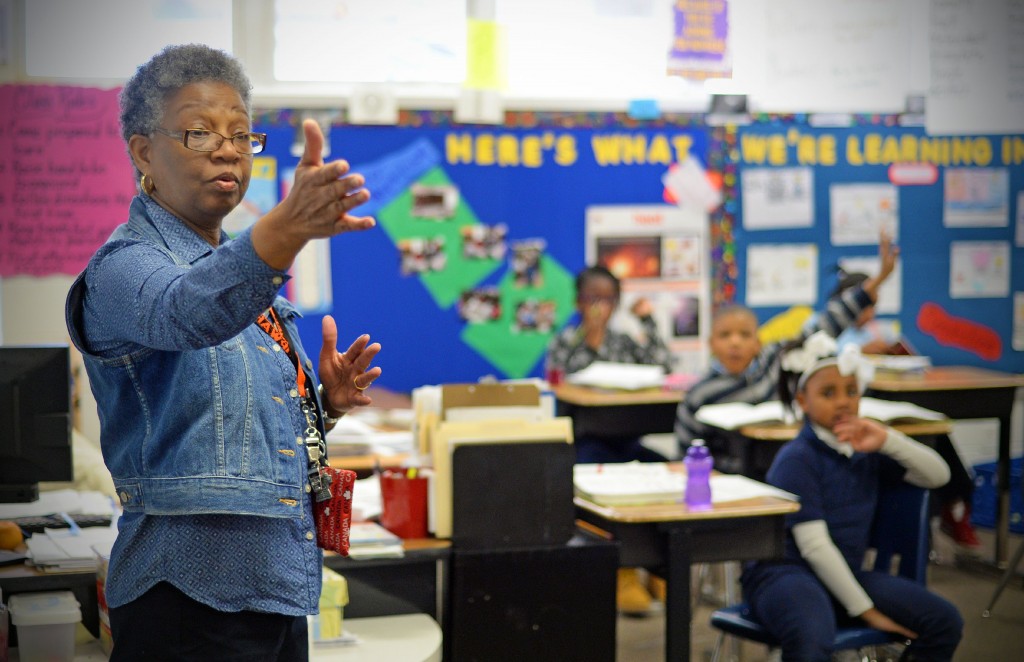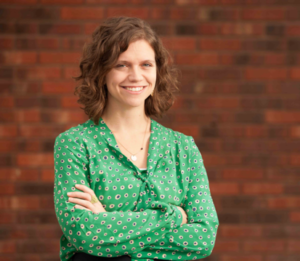
Good teachers make for engaged students and stable schools. That’s why Washington University in St. Louis is partnering with St. Louis Teacher Residency to train and support a new generation of educators.
“As an institution of higher education and one of the region’s largest employers, Washington University knows that strong K-12 schools are vital to St. Louis’ future,” said Victoria May, executive director of Washington University’s Institute for School Partnership (ISP). “We also appreciate that few jobs are as challenging as teaching in a high-needs classroom. As instructional specialists, we are excited to prepare tomorrow’s teachers for that urgent challenge.”

The St. Louis Teacher Residency program was founded by Washington University Arts & Sciences alumna Laura Vilines, who earned a bachelor’s degree in English and political science in 2006. The four-year program is recruiting its first cohort.
Residents will spend one year as an apprentice in an experienced teacher’s classroom, followed by three years as a paid lead teacher. In addition, residents will work toward a graduate degree in teaching at University College in Arts & Sciences at Washington University.
Saint Louis Public Schools and KIPP: St. Louis are the primary partners for the upcoming academic year. Other schools and districts also are anticipated to join the program, Vilines said.
Vilines said the residency model addresses some of the most vexing issues in urban education such as teacher quality and teacher retention. She said teachers often leave the profession because they are not prepared for the day-to-day realities of working in a high-needs classroom. The residency also will focus on ensuring that residents are content-area specialists.
“We want to make sure that every student in Saint Louis Public Schools has access to an effective teacher who is committed to working in our community,” Vilines said. “Our goal is to train new teachers who are masters of their content and who are capable of accelerating student achievement from the moment they enter the classroom as a teacher of record.”
The graduate degree coursework, developed by ISP, University College and St. Louis Teacher Residency, will focus on issues in urban education and effective teaching methods. ISP instructional specialists are recognized leaders in curriculum development and inquiry-based learning techniques and already have provided professional development to local teachers through the MySci science curriculum.
That program, which currently serves 36,000 K-8 students in public school districts, charter schools and private schools around the St. Louis region, teaches students how to make a claim, evaluate evidence and explain reasoning — skills they need in all subjects, not just science.
University College also has a strong relationship with local educators, said Dean Mark Rollins. Its offerings for educators include a master’s degree in education; an advanced certificate in math and science education; and post-baccalaureate degrees in elementary and secondary education.
And last year, University College introduced a tuition assistance program for full-time employees of the school districts of Saint Louis, Clayton and University City, as well as all regional charter schools.
“In their University College course electives, students will be able to draw on the rich resources in Arts & Sciences departments such as history, English, mathematics and American culture studies,” Rollins said.
Comments and respectful dialogue are encouraged, but content will be moderated. Please, no personal attacks, obscenity or profanity, selling of commercial products, or endorsements of political candidates or positions. We reserve the right to remove any inappropriate comments. We also cannot address individual medical concerns or provide medical advice in this forum.